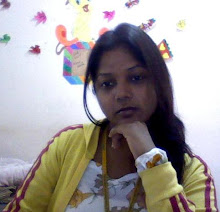 To upgrade the standards of research being done in Indian universities, University Grants Commission (UGC) asked all the universities to follow the minimum standards and procedure for awarding MPhil and PhD degrees, but till date majority of the universities across the country has not adopted it, reports Chitleen K Sethi and Smriti Sharma Vasudeva of Tribune News Service.
To upgrade the standards of research being done in Indian universities, University Grants Commission (UGC) asked all the universities to follow the minimum standards and procedure for awarding MPhil and PhD degrees, but till date majority of the universities across the country has not adopted it, reports Chitleen K Sethi and Smriti Sharma Vasudeva of Tribune News Service.One of the conditions laid down by the UGC in June 2009 for universities was that soft copies of all MPhil and PhD thesis submitted to the varsities would be send to the UGC to be hosted on the Information and Library Network (Inflibnet) Centre, Ahmedabad, designed as the repository of all research work.
"We are yet to receive thesis from any university following this notification. However, we have had some voluntary submissions by researchers," said Jagdish Arora, Director of Inflibnet, and chairman of UGC committee on research regulations.
Arora added that the committee had recommended universities across the country to use anti-plagirisation software. "This software has some limitations but it can at least point out works where large parts have been copied verbatim. We have further suggested that the software be used to check authenticity of the thesis before the degree is given and not after. At Inflibnet we can do only a postmortem of the thesis. It is for the university authorities to be alert," stated he.
The universities, at their end, seem to be fighting a losing battle against plagirised research. Vice-chancellor of Mahatma Jyotiba Phule Rohilkhand University, Bareilly, Satya P Gautam, said he had headed the research committee of the university to keep a check on the researchers. The Internet has further complicated the issue. "Universities in Europe and North America take a very serious view of plagiarism and fake thesis writing. They withdraw the degree. Indian universities should do the same," said he. Himachal Pradesh University V-C Sunil Kumar Gupta said project reports submitted by the students too were being copied. "For PhD we are putting our research on line through Inflibnet," added he.
Kurukshetra University Vice-chancellor DDS Sandhu said the university followed UGC norms in research. "Every researcher has to get two papers published in reputed Indian journals. This ensures that a part of his research comes in public domain and if there is something fishy, it gets noticed. Also, we are planning to put all PhD thesis on our website along with salient features of the research," said he.
Jaspal Singh, V-C, Panjabi University, Patiala, said, "Every PhD topic is first discussed by the research board and the candidate and guide is supposed to answer queries of the panel. Also, we have adopted UGC guidelines to ensure such things do not happen. We would be tying up with Inflibnet also."

Indian education system, specially higher education system required overall changes. Due to corruption and malpractices things are getting worse.
ReplyDelete